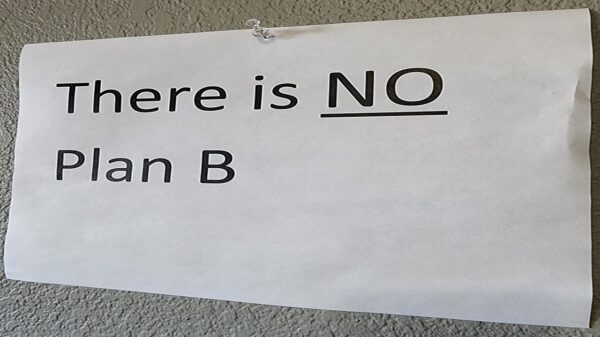Attrition is part of a manager’s life. During early career as a manager, its quite natural for us to think of it as a personal failure and we naturally tend to over-react to a resignation. Over the years, we learn (the hard way) how to handle the scenario of a high-performer resignation!
The worst that could happen to you as a manager, is that your team member resigns without giving any heads-up or having any discussion with you (shock resignation). There is a lot you could have done to avoid this situation. More often than not, it would happen if you are too busy with deliverables or have lost pulse of the team and key resources or a sudden change in organization.
However, in an ideal situation both of you over the course of your regular interactions would have discussed and identified the individual’s career aspirations and tried out all possible means of achieving it. A resignation in this case is a natural culmination of efforts from both ends for a win-win situation.
Organizational changes, Financials (comp revision and bonuses), HR policies, Mergers & Acquisitions all form reasons for attrition. These are beyond Manager’s remit and influence. So, for all the managers who have grown up thinking that “people leave their managers, not companies“, my advice is to write it down on a piece of paper and flush it down the toilet. It will make you feel better.
When an individual submits resignation, its his non-negotiable intent to move on. It would be childish, not only on your part as a manager, but also as a person representing your Organization to start re-negotiating or looking at options after resignation. The organizational maturity would be questioned when manager starts making frantic calls to HR and Sr. Management. Any outcome after that would be equally disastrous.
There are three major activities that you as a seasoned manager can do once you see a resignation in your inbox.
The first one is obviously to talk to the individual. This discussion should purely focus on the efforts that the individual has put in and his journey in the organization so far. An ideal manager at this point would thoroughly acknowledge and appreciate the contribution and possibly recollect all the stretch periods where the individual has stepped up. During the conversation, the manager should also get the individual’s view on his replacement option. You would surprised, some of the brilliant ideas come from individuals after resignation.
Some individuals also request that the resignation be kept secret until they themselves inform their colleagues. This should be honored with a firm date agreed beyond which it would be difficult for you to keep it a secret (as you cannot find a replacement secretly).
The second activity is to inform the higher ups. How seasoned you are as a manager depends on this communication. An ideal communication to your higher ups, would not just be informing about an high-performer attrition in your team but the possible impact on the team and deliverables and your options for his replacement to reduce the impact. This communication should also inform the higher ups about when you will likely be getting back to them on the confirmed plan of action. If you mess it up here, some one else might be making the decisions on your behalf.
The third and most important activity is to inform the team on the ground. Assuming they already know about the resignation, the expectation from them would be to hear about the replacement. That is why, a seasoned manager would typically take some time announcing the resignation to the team. Also, the assumption is that once the individual resigns, the team comes to know about it invariably (either by the individual himself or an ear-to-ear conversation)!
The replacement could either be a one-to-one (some one replacing the reisgnee from within or outside the team) or many-to-one (more than one team members sharing the leavers’ responsibility). It could also be an interim arrangement, if the ideal replacement will stretch beyond the individual’s notice period. Its better to talk to those replacer(s) before this meeting and set the expectations. Also, its advisable to talk to other high-potentials in the team to address any concerns they might have with your choice. If the leaver is at a senior position, its always advisable to appoint the replacement from within the team. This would give a sense of career path to the rest of the individuals in the team.
Be prepared for some tough questions when you inform the team. You could be questioned about the reasons for the replacement in front of everyone. If the individual is a sad-leaver, one would even be asked about what company will be doing to arrest more attrition because of the same reasons (as you are the company’s spokesperson to your team). I would generally recommend having this meeting on a Friday, so team members will have enough time to digest and come back fresh on a Monday morning.
Except in very rare situations, the motivation of the resigned individual drops drastically. He would already be living in his next role. It would be kiddish again for you to expect 100% productivity. Its better to keep the resigned individual in a consulting role with the majority of the responsibilities carried by the replacer(s).
Some subtle things that might help you during his notice period. Don’t forget to have a team dinner or a parting event to recognize the out-going individual. Ensure the resigned individual gets same respect and treatment as he did before his resignation. The corporate world is a very small place and its not unlikely that you get to work together in future as well. Also, always keep the doors open for the individual to return back after a while.
Finally, its these high performers whom you would possibly be reaching out to, when you set out to establish your next empire ;)… So do remember that its an asset you are loaning to the world only to take it back when you need it ;)!!!
A leaving thought for you… How you would you handle a team member who consistently says that he is unhappy with the firm; would resign any minute; spreads negativity and tells everyone about the interviews he attended – but never resigns!!! ??? 🙂
(Published 4th July 2015)







